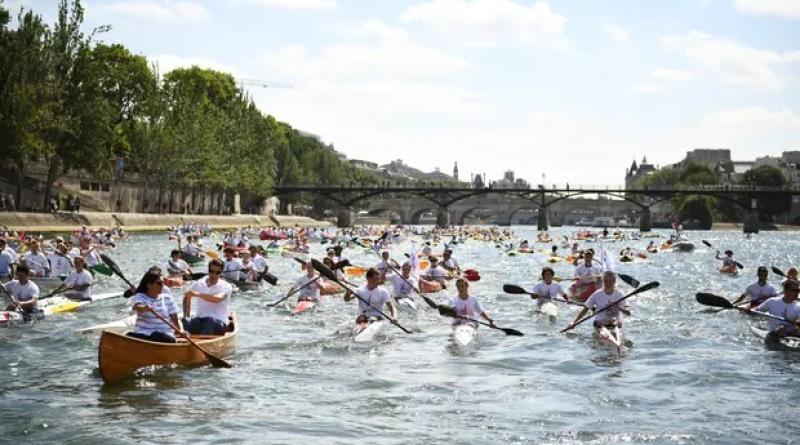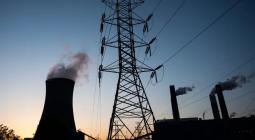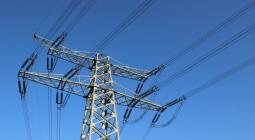When it comes to rich countries taking the environment seriously, I say: vive la France

While we remain transfixed by a handful of needy egotists in Westminster and the crises they manufacture, across the Channel a revolution is happening. It’s a quiet, sober, thoughtful revolution, but a revolution nonetheless. France is seeking to turn itself into an ecological civilisation.
Like every government, the French administration should be going further and faster to address the greatest predicament humankind has faced: the gathering collapse of Earth systems. But you can measure the seriousness of the government’s plan by its institutional commitment. France now has a ministry for ecological transition. By the end of next year, the nation’s 25,000 most senior civil servants will have been trained in the principles behind this transition. By the next presidential election, in 2027, every public sector worker will have had this training, tailored to their sector. Think about that: 5.6 million people will be taught about the biodiversity crisis, the climate crisis and the natural resources crisis – how these phenomena relate to the public services they supply and how public sector workers can use this knowledge to change the way they work.
Already, in energy, water and resource conservation, France has done what the UK government vaguely promises for 2040 or 2050 (I’ve come to see 2040 and 2050 as codewords for “never”). Let’s take a look at one of these programmes: waste reduction. The French government has passed a circular economy law, which seeks to stop the unnecessary use of resources. Single-use plastics are forbidden in public procurement. Shops must allow people to bring refillable containers, and charge lower prices when they do. Anywhere that people gather in large numbers must be equipped with drinking fountains, as part of a wider plan to phase out plastic bottles. Manufacturers, wholesalers and retailers are forbidden to throw away unsold items: they must instead be given away or recycled, creating an incentive to avoid overproduction.
The government is seeking to eliminate planned obsolescence. Major commercial sectors – electrical and electronic equipment, toys, sports, leisure, DIY, gardening, textiles, footwear and furniture – must pay into a repair fund. Companies have to provide spare parts and repair instructions. Next year, some sectors will need to display a “durability index” on their products. Manufacturers are banned from using any strategy to restrict the repair or longevity of the devices they sell, such as the software updates that slow down phones and tablets.
Producers and distributors of a wide range of goods – from sanitary towels to cars – are or will shortly be financially responsible for their processing and disposal once they have been used. Manufacturers must produce new eco-design plans every five years to cut their resource use and improve recyclability. By 2025, single-use plastic packaging will be reduced by 20%, all new washing machines will have filters to catch plastic microfibres, and supermarkets and caterers will have to reduce food waste by 50%.
Compare this with the UK. The government will ban a narrow range of single-use plastics in England, mostly in the fast-food sector. But it has sabotaged Scotland’s plans to go further. The Scottish government’s attempt to introduce a deposit scheme for glass bottles has been delayed for two years, after the Westminster government refused to grant an exemption to the Internal Market Act.
There are similar contrasts in other sectors. For example, France has published a plan for protecting its water resources from source to sea, reducing the amount withdrawn from rivers and groundwater, reusing grey water (the water that drains from sinks, showers, washing machines etc), tackling pollution and improving the ecological condition of rivers and lakes. The government is spending €1.4bn (£1.2bn) on cleaning up the Seine, in which, for much of its length, swimming has been forbidden since 1923, as the water is so toxic. The river will be the centrepiece of the 2024 Paris Olympics, when triathletes and marathon swimmers will compete in its waters.
The UK, by comparison, failed to include an overall improvement in water quality in its Environment Act targets, and appears to have abandoned its feeble pledges to take action on sewage pollution.
Emmanuel Macron’s is not a radical government, and none of these should be seen as radical measures. They are the minimum policies that any responsible government should be implementing now, as our planetary emergency unfolds. France is no eco-paradise, and its policies are beset with contradictions. French lobbying is responsible for some of the worst aspects of the EU’s common agricultural policy, one of the most destructive forces on Earth. This week, the French government banned a leading environmental direct group, Les Soulèvements de la Terre. And it is of course still committed to growth-based capitalism.
But even the basic green measures implemented in France feel like an impossible dream in the UK, where the bugles keep sounding the retreat from reality. Our government has wasted its entire time in office on culture wars, scapegoating and self-inflicted scandals. It will do anything to secure its own survival, nothing to secure anyone else’s.
Rather than ramping up environmental standards, it seeks to rip them down. On Tuesday, the House of Lords accepted two amendments to the retained EU law bill. Their purpose was to prevent environmental protections from being weakened when European laws are either scrapped or replaced. The government has promised that “environmental protections will never be downgraded”, and the amendments sought to write this promise into law. But the following day, the government whipped Conservative MPs to reject them in the House of Commons. Now environmental protection hangs on the good faith of government ministers – and we know how far that goes.
After 13 years of Conservative government, the UK has become a dumping ground for every new assault on the planet corporations can devise, from disposable vapes containing lithium batteries, of which 1.3m, impossible to recycle, are dumped every week, and which can burst into flames when they are crushed in bin lorries (a literal bin fire), to private cars the size of builders’ vans, with fuel consumption to match.
Every government should be making the transition towards an ecological civilisation. That France, mundane as its measures are, is among the world leaders should be a source of bitter shame to other rich nations.
The only politics that matter now are those that might arrest our rush towards the brink. If Earth systems collapse, nothing else counts. Yet every day government and media produce a new distraction, hypnotising us with spectacle after meaningless spectacle. This is how we go down, gasping and gurning at the antics of those who claim to govern us.
cover photo:Paris mayor Anne Hidalgo and the co-president of the Paris bid for the 2024 Olympics, Tony Estanguet, paddle on the Seine in Paris. Photograph: Reuters






